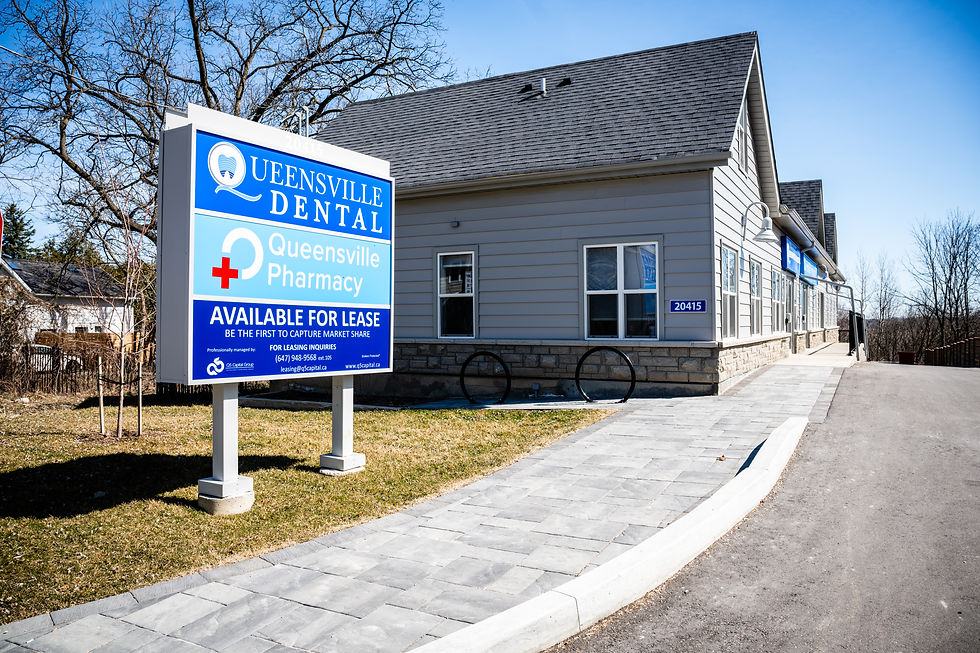Housing Supply Solutions in Toronto: Building Smarter for the Future
- ibraheemadamsaeed
- Oct 18, 2025
- 4 min read
Toronto’s skyline has always told a story — one of growth, ambition, and resilience. Yet today, that story faces a critical challenge: how do we create enough housing to meet the needs of a growing population while maintaining livability, sustainability, and economic balance?
With affordability at record lows, construction costs rising, and approval processes slowing development, Toronto’s housing supply shortage has become one of the city’s most pressing issues. Every year, thousands of new residents move to the GTA, but the pace of new construction simply can’t keep up. The result? Skyrocketing rents, record-low vacancy rates, and increasing strain on infrastructure and community planning.
To move forward, the industry must embrace innovative housing supply solutions in Toronto that rethink how we design, build, and finance homes.

Understanding Toronto’s Housing Supply Crisis
Toronto’s housing crisis isn’t caused by a single factor — it’s a complex intersection of policy, market dynamics, and urban realities. Some of the key challenges include:
Lengthy approval timelines: It often takes years for new projects to move from concept to construction.
Rising construction costs: Labour shortages, material price volatility, and interest rates have driven up project budgets.
Limited available land: Toronto’s urban boundaries and zoning constraints limit large-scale greenfield development.
Market imbalances: A heavy focus on high-rise condo ownership leaves limited options for middle-income renters and families.
The solution isn’t just to build more — it’s to build smarter, with strategies that balance affordability, sustainability, and community needs.
Adaptive Reuse: Breathing New Life into Existing Structures
One of the most effective housing supply solutions in Toronto is adaptive reuse — transforming underused or aging buildings into modern, livable spaces.
By repurposing existing commercial or industrial structures, developers can:
Shorten construction timelines by leveraging existing foundations and infrastructure.
Preserve heritage and neighborhood character.
Reduce environmental impact by minimizing demolition waste and new material use.
Projects like heritage building conversions and warehouse-to-loft transformations have become popular across the GTA. These projects prove that the past can coexist with the future — and that sustainability begins with what already exists.

The Rise of Purpose-Built Rentals
While the condo market recalibrates, purpose-built rental housing is emerging as the backbone of Toronto’s future housing supply.
Rental developments address two critical issues at once — affordability and availability. By designing properties specifically for long-term rental, developers can ensure stable returns while offering flexible living solutions for residents priced out of ownership.
The benefits of purpose-built rentals include:
Consistent, long-term revenue streams for developers and investors.
Greater affordability and security for tenants.
Opportunities to integrate sustainability and community amenities from the ground up.
Fusioncorp’s expertise in multi-unit residential and apartment rentals reflects this growing shift — designing and constructing buildings that prioritize livability, energy efficiency, and long-term community value.

The Missing Middle: Gentle Density for Growing Cities
Toronto’s low-rise neighborhoods occupy nearly 70% of residential land but remain underutilized. The “missing middle” — housing types like townhomes, four-plexes, and mid-rise apartments — offers a path forward.
Gentle density solutions provide housing diversity without altering neighborhood character. They can be integrated into existing communities faster than large-scale projects and are often more affordable for both builders and residents.
To make this viable, policy changes such as zoning reforms and reduced parking requirements are essential. Developers can then respond with smaller, more agile projects that address real community needs.

Modular and Prefabricated Construction: Speed Meets Efficiency
Modern construction technologies are also transforming how Toronto approaches housing supply. Modular and prefabricated construction methods allow for faster project delivery, better quality control, and reduced waste.
By manufacturing components off-site and assembling them on location, developers can:
Cut construction timelines by up to 50%.
Reduce environmental impact.
Improve safety and cost predictability.
For a city where time and affordability are both in short supply, modular construction represents a game-changing opportunity.

Collaborative Project Management for Better Outcomes
Even the best housing strategies fail without effective execution. Strong project management in the construction industry ensures projects stay on schedule, on budget, and aligned with community goals.
A collaborative approach — uniting developers, architects, trades, and local authorities — enables teams to anticipate challenges early and adapt quickly.
At Fusioncorp, every project begins with clear communication and hands-on coordination. From preconstruction planning to completion, we prioritize transparency, accountability, and precision — ensuring each build contributes meaningfully to Toronto’s housing ecosystem.
Public-Private Partnerships: Building Beyond Boundaries
Government and private sector collaboration is critical in unlocking Toronto’s housing potential. Public-private partnerships (PPPs) can accelerate the delivery of affordable and mixed-income housing by leveraging both funding and expertise.
Recent policy shifts — such as inclusionary zoning and municipal incentives for rental housing — are steps in the right direction. When combined with private innovation, these measures can make housing development both financially and socially sustainable.
Conclusion: Building Smarter, Not Just More
Toronto’s housing challenge can’t be solved by volume alone — it requires innovation, collaboration, and adaptability. From adaptive reuse and purpose-built rentals to modular construction and missing middle housing, the future of urban development lies in combining creativity with practicality.
At Fusioncorp, we’re proud to help shape that future — delivering high-quality, community-focused projects that contribute to long-term housing stability and urban growth.
🏙 Explore how thoughtful construction and design can transform Toronto’s housing landscape. Click here to learn more about our projects and approach.



Comments